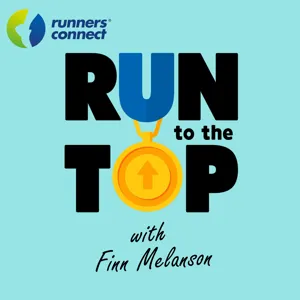Life After Breath with Jacob Cooper

Meet Jacob Cooper
Jacob Cooper is a Clinical Social Worker, Certified Reiki Master, and Certified Hypnotherapist specializing in Past Life Regression Therapy; he works privately with clients through online services. Inspired by his near-death experience and transformative encounters, he facilitates spiritual awareness and empowerment through life-changing seminars. Currently, he resides and practices in Long Island, NY. He is the author of "Life After Breath" published by Waterside Productions. Find out more about Jacob at jacoblcooper.com
Life After Breath
The interview with Jacob Cooper was such a powerful and profound look into a Near Death Experience, aka NDE, and how these experiences are forever life-changing. Jacob shared his NDE when he was three years old and how it left him awake to the potentiality of humanity and breadth and depth of the Divine. Jacob was diagnosed with Pertussis at the age of three. Without realizing the severity of such a diagnosis, his parents let him go to the park to play. On a jungle gym ladder, he started to cough and couldn't breathe. Without enough oxygen, he remembers leaving his body and seeing that his body wasn't fully working. In this incredibly enigmatic experience, he saw his spirit guides on both sides of him and shared that there are no words to describe them. He then saw an endless sea of thousands of angels. They had a uniform look, and he felt enormous unconditional love from them. In Jacob Cooper's words, "It felt like a grand reunion where he could feel all is well and all is divine love". With their help, he survived his near-death experience, truly giving him life after breath.
A Secret Worth Sharing
Jacob Cooper spent 20 years not telling a soul about his experience, both out of sacred reverence for what happened and knowing it would raise eyebrows and create uncomfortable questioning. His near-death experience left him with an enormous gift still with him; the remembrance that heaven is right here and that love is the ultimate collateral. He has helped many build trust with the light that lives inside us and teaches us how to connect to this eternal knowing. The key to expanding your sense of the divine is through raising your consciousness. Jacob Cooper shares some of the ways to raise consciousness:
- To expand and transform, you have to be vulnerable to lose yourself.
- Meditation and quieting the mind are crucial. It's in the still of the mind that you can access truth and get in touch with your infinite nature.
- You've got to match your light with the light on the other side; which is an all-loving unconditional reverence and love
Jacob reminds us not to be defined by our story but to define it ourselves. This is the gift of free will and being human. And, by tuning into the GPS of your soul, you will never be misled.
Final Thoughts
Jacob Cooper's life after breath experience gave him the eternal knowledge that we can easily align ourselves with heaven, even here on earth. That it doesn't take a near-death experience to connect and feel the joy that is heaven or our authentic infinite nature. We only need to practice raising our consciousness and connecting with what is readily available.
Looking To Help Others Know Who They Are and Design Their Best Life?
If you are feeling a strong urge to help other big-hearted empaths get unstuck and design their best life, you've got to check out my Life Designer Coach Academy. It is a world-class four-month virtual live coach certification program that will give you proven tools, techniques, practices, and methodology to be a powerful coach. This coaching program is for aspiring and current coaches looking to fill in the missing pieces and gain confidence and mastery both in the coaching core competencies and the integrative health modalities from a mind-body science, positive psychology, and healing arts perspective. To learn more, go to juliereisler.com/certification.
Connect with Jacob Cooper
- Website: jacoblcooper.com
- Facebook page: Jacob Cooper, LCSW
- Instagram: @jacobcooperlcsw
- LinkedIn: Jacob Cooper, LCSW
- Twitter: @jlcooper424
Sacred Connection
As always, this community is a sacred, safe place built on love and acceptance. It was created to help you evolve and expand into your highest self. Please share your wisdom, comments, and thoughts. I love hearing from you and learning how you are being your truest, you-est you. Please join us in our Facebook group The You-est You® Community for Soul Seekers
Join host Julie Reisler, author and multi-time TEDx speaker, each week to learn how you can tap into your best self and become your You-est You® to achieve inner peace, happiness, and success at a deeper level! Tune in to hear powerful, inspirational stories and expert insights from entrepreneurs, industry thought leaders, and extraordinary human beings that will help to transform your life. Julie also shares a-ha moments that have shaped her life and career and discusses key concepts from her book Get a PhD in YOU
Here's to your being your you-est you!
Enjoying the show?
For iTunes listeners, get automatic downloads and share the love by subscribing, rating & reviewing here!
*Share what you are struggling with or looking to transform with Julie at podcast@juliereisler.com. Julie would love to start covering topics of highest interest to YOU.
You-est You® Links:
- Subscribe to the Podcast
- Learn more at JulieReisler.com
- Become a Sacred Member at the Sacredology® Membership
- Join The You-est You® Community for Soul Seekers on Facebook
- Subscribe to Julie’s YouTube Channel
- Book Julie as a speaker at your upcoming event
- Amazon #1 Best selling book Get a PhD in YOU
- Download free guided-meditations from Insight Timer
- Julie’s Hungry For More Online Program (10 Module Interactive Course)
- 15 Days Of Gratitude To Change Your Life on InsightTimer

